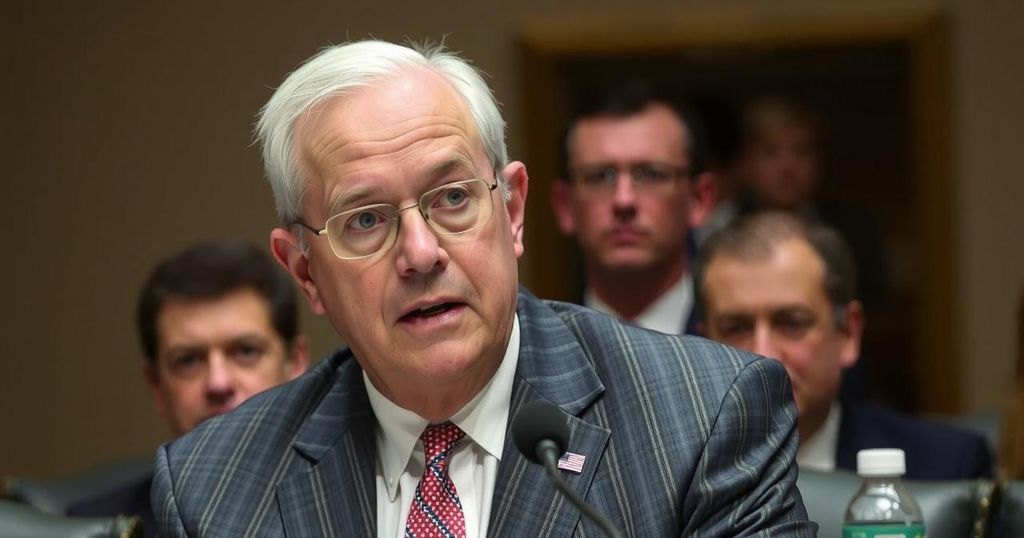Blinken Confronts GOP Criticism Over Afghanistan Withdrawal in Congress

Secretary of State Antony Blinken faced criticism during a House hearing regarding the U.S. withdrawal from Afghanistan, with Republicans blaming the Biden administration for the resulting chaos and security threats. Blinken defended the administration’s choices, citing the restrictive withdrawal agreement made by former President Trump. Congressional investigations reveal bipartisan concerns over the failures that occurred during the exit, complicating narratives of accountability.
On Wednesday, Secretary of State Antony Blinken appeared before the House Foreign Affairs Committee, scrutinized for the United States’ withdrawal from Afghanistan, a pivotal issue in President Biden’s administration. Republican Representative Michael McCaul criticized this exit, labeling it “the beginning of a failed foreign policy that lit the world on fire” and called for accountability regarding the event. Blinken began his testimony by addressing the families of those U.S. forces killed during the withdrawal, offering his apologies amid protests from demonstrators accusing the administration of negligence.
During the hearing, Blinken reiterated the challenges faced by the Biden administration, noting the restrictive nature of the withdrawal deal negotiated by former President Trump with the Taliban in 2020. He explained that Biden’s decision was framed between continuing the war or removing U.S. troops, stating, “Had he not followed through on his predecessor’s commitment, attacks on our forces and allies would have resumed.”
This testimony comes in the wake of a critical report by House Republicans attributing the withdrawal’s failure largely to the current administration while minimizing Trump’s involvement despite his prior agreement with the Taliban. This assessment highlights the cascading military and diplomatic missteps that unfolded during the final months of America’s presence in Afghanistan, resulting in a chaotic withdrawal that left numerous individuals at risk once the Taliban regained control.
Previous investigations suggest a flawed strategy that has developed across multiple administrations, ultimately indicating that both President Biden and former President Trump share significant responsibility for the fallout of this controversial chapter in U.S. foreign policy.
The U.S. withdrawal from Afghanistan marks a significant and contentious point in contemporary foreign policy, raising numerous questions about military strategy, diplomatic agreements, and overall accountability. The decision to end a long-standing military engagement has come under intense scrutiny, particularly given the swift Taliban takeover that occurred shortly thereafter. The negotiations leading to the withdrawal, particularly the agreement facilitated under former President Trump, laid the groundwork for ensuing controversies as both current and past administrations grapple with the implications of this exit. The recent Congressional hearing aims to address these critical issues directly, revealing underlying tensions surrounding U.S. commitments and foreign alliances.
In conclusion, Secretary Antony Blinken’s testimony underscored the complexity surrounding the U.S. withdrawal from Afghanistan while highlighting the controversial decisions taken by both the Biden and Trump administrations. The harsh criticism from Republican members of Congress reflects broader frustrations over perceived failures in U.S. foreign policy. As investigations provide conflicting narratives regarding responsibility, the focus remains on understanding the implications of this withdrawal and its lasting effects on international relations. The discourse continues to evolve, addressing both accountability and the lessons learned moving forward.
Original Source: www.mercurynews.com







